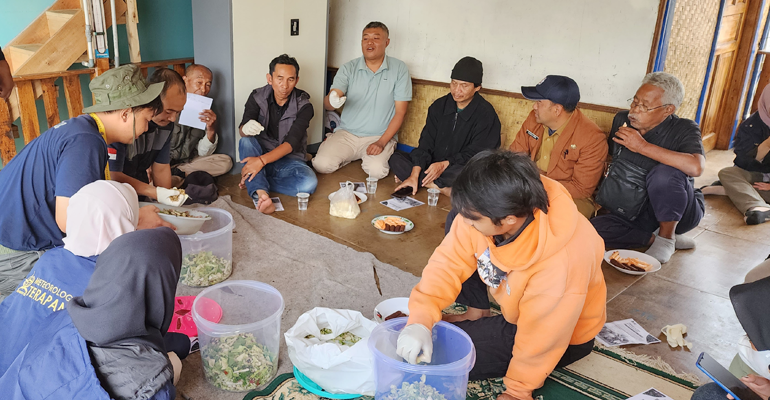Himagreto IPB University Conducts BSF Compost Training with Residents of Pulosari Village

Agrometeorology Student Professional Association (Himagreto), Department of Geophysics and Meteorology (GFM) IPB University conducted compost making training using black soldier fly (BSF) larvae in Pulosari Village, Pangalengan District, Bandung Regency. This training was carried out as part of a series of 2023 Meteorological Observation Studies (STORM) activities.
Compost training using BSF larvae aims to answer waste problems, especially vegetable waste which is abundant in Pulosari Village. It is hoped that with this training, residents of Pulosari Village can manage organic waste into products that have economic value as well as one of the climate change mitigation efforts.
The training begins with delivering material on types of waste, introduction to BSF larvae and composting and continues with demonstrations/practice with the community participating in the training. Furthermore, this training ended with a discussion session which was responded with great enthusiasm by the community members.
Lintang, one of the executors of the activity, said that it was hoped that this training would continue and become a way to reduce waste in Pulosari Village. He also thanked the residents for their enthusiasm in participating in this training.
“I really appreciate the enthusiasm of the residents in participating in this training. It is hoped that the composting idea will not only end here, but will continue in the future to reduce waste in the Pulosari Village environment. Not only does it improve the economy, this composting can also reduce the rate of greenhouse gas emissions. from the waste sector,” he said.
According to Herman, a representative of the compost training participants, this training was very useful. He is also interested in continuing it as one of the new economic movements.
“This kind of training is very useful for us. We come to know new knowledge and are interested in managing organic waste which is very abundant here. It turns out that waste like this can also be useful and has economic value,” he said. (Spt/Rz) (IAAS/AMR)



